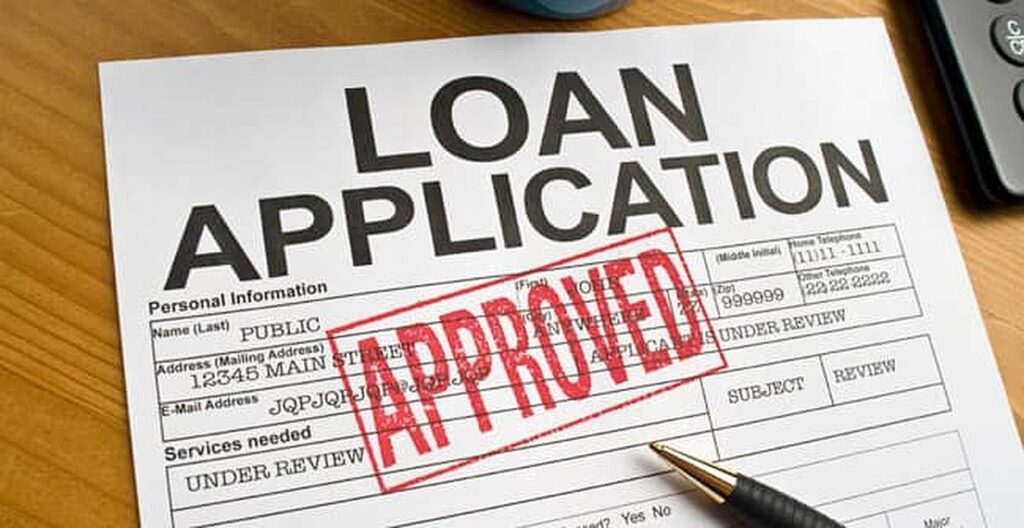
Sometimes, unforeseen financial crisis may put one in a dire situation whereby financial aid may be sought. This situation though undesirable, sometimes rears its ugly head in the life of individuals. When faced with this situation, one of the options available to you could be taking a loan to finance your immediate need.
There are a number of loan options you could consider obtaining in times of financial distress. Loan is money that one borrows from a financial institution to help them manage prearranged or unforeseen events. This leaves the borrower with a debt that has to be repaid with interest, often within an agreed timeframe.
Obtaining an advance from a creditor may not be as bad as you may think as far as you do it the proper way. There are reliable firms and creditors that offer financial advance to people in financial distress. These firms are reputable and will give you the necessary help if certain conditions are fulfilled. You can consider checking out the beste lån with digitaltechupdates.com and other trusted sources in times of pressing financial crisis.
Loan Types
There are a number of financial advance that one may seek. These are classified into the following categories:
Secured And Unsecured Loans
Secured loan is a form of credit that requires you to have collateral to obtain. For example, most banks or financial institutions require the intending borrower to show documents that prove they own an asset. This is held until the borrower fully repays the credit taken from the bank.
Among other assets that can serve as collateral are bonds, stocks, as well as personal property. Often times, people seek secured advance in situations where they need huge amount of money. Given that some lenders do not accept to lend huge sums of money without commensurate collateral, the assets serve as guarantee.
This form of advance has some advantages which include, long repayment timeframe, reduced interest rates, strict borrowing boundaries etc. examples of this form of credits are boat loan, mortgage, auto loan etc.
On the other hand, an unsecured one implies that the intending borrower will not need to place any priced asset as a form of collateral. Here, lenders are thorough while assessing the financial status of the borrower. This helps them estimate the borrower’s repayment capacity and decide whether to issue the credit or otherwise. Examples of unsecured advance are credit card, personal loans and education loans.
Open and Closed-End Credits
A credit can be either closed or the reverse, open-end. Open-ended credit implies that an individual retains the liberty to borrow multiple times. Examples of this loan are credit cards as well as line of credit. However, they both come with credit restrictions. A credit restriction is the highest amount of money than an individual is permitted to borrow at different times.
Depending on your preference and needs, you may decide to use just part or your entire credit limit. Each time you pay for a given item with your credit card, the credit available reduces.
Closed-end loan on the other hand is also referred to as installment advance. It serves to fund specific purchases. Here, when you borrow, you pay equal amount monthly for an agreed timeframe. Ideally, these are secured. It empowers the lender to seize the assets placed as collateral if the one fails to pay the agreed installment amounts.
Conventional Loans
This type of credit is any form of mortgage loan not guaranteed or insured by government. Examples of such credit are those under Department of Veteran Affairs, Federal Housing Agency or Agriculture credit programs.
These are not secured or offered by any entity of government. Rather, they are offered by private lenders which include, credit unions, banks, mortgage companies etc.
Important Considerations before Taking Out a Loan
If you are thinking of taking out a loan there are some factors to consider. Some of them include the following:
Credit Score
If you wish to be considered for credits, you must endeavor to have good credit score as well as history. These are pointers to your prospective lender that you are capable of repaying the funds within record time. Hence, higher credit score improves chances of an individual’s loan application to be approved.
Good credit score also increases your likelihood of being offered favorable terms.
Level of Income
Your income plays a vital role in getting approval for credits. If you are an employee, you will sometimes be required to turn in pay stubs, as issued by your employer, W-2 forms etc. But if self-employed, all you may require is your tax return, ranging from two to more years as well as invoices where necessary.
Monthly Obligation
Asides income, it is equally important that you weigh your monthly obligations.
For example, you may be receiving an income of $6,000 but your obligation monthly amounts to $5,500. In such scenario when the conditions are not favorable, such individuals may find it hard obtaining a loan.

How To Obtain A Loan
If you wish to obtain credit for any purpose, the following steps will guide you properly:
Check The Numbers
You would not want to obtain a loan and not be able to repay. Hence, while lenders are running a check to ascertain your credit-worthiness, you should also check the numbers involved. This will help you determine the feasibility of paying off the amount obtained in due time.
A good way to start is by ascertaining the amount you will require, bearing in mind that some lenders will bill you an origination fee. They deduct this fee from the loan proceeds. As a result, ensure to obtain enough funds to still be left with the amount you need after the deduction has been made.
Before going ahead with your application, find out whether lender charges origination fee, if they do, determine the amount. Afterwards, calculate the amount you will require after the deduction of the fees. In addition, find out the monthly repayment plan and see if it fits with your plan. You can click here to learn more on how to calculate interest rate.
Consider Credit Score
Some lenders may run a credit check. This is to ascertain your likelihood to pay back the amount obtained. Even though a few online lenders prefer to consider other credit data, they still basically consider one’s credit score.
Most firms that may offer you financial assistance traditionally require a fair credit score ranging from 580 to 669. On the other hand, excellent credit score is considered to be above 670. This will guarantee you better chance of obtaining an advance with competitive interest.
Consider Your Options
Depending on the level of your creditworthiness, you may require a co-signer to obtain approval for loan with competitive interest rate. In the absence of a co-signer or the non-provision for one, an option of secured loan may suffice, instead of one that is unsecured.
Secured credits need collateral that may include cars, house or other valuables. The collateral can be seized if you fail to repay within the agreed timeframe.
Consider Credit Type
Once the above considerations have taken place, ascertain the loan type that best serves your need. Although some lenders do not bother on how you utilize the funds, others are more rigid. The rigid ones may spell out the specific purpose(s) of the amount obtained.
Hence, it is important you consider and choose one that will give you funds for the specific reason you seek it.
Consider Best Rates
Instead of jumping on just any offer, take your time to select one that offers the most attractive interest rate. Compare lenders and have a clear idea of which ones you are qualified to seek.
Generally, banks, online lenders and credit unions are major providers for credits. Among these options, choose the one that gives you the best rates as you can easily repay them at a reduced rate.

Choose and Apply
After due research, you can choose the best lender among your options and kickstart the process of application.
The duration of the application depends on your choice and their guidelines. All options have varied qualification requirements. Different information may also be needed before you succeed. While some may require in-person application, others may favor online application.
Provided Needed Documentation
The documents you need may differ according to the lender and the type of loan and the amount you want. Once your application is submitted, additional documentation may be required. Documents that may be needed include latest pay slip, driver’s license and or residence license.
Accept the Offer
After you receive a confirmation that your application has been approved, you may need to accept the terms and finalize the process. Once this is done, the funds will be given to you within a few days.
You need to keep track of periods when your payments will need to be made and do the needful.
Conclusion
Taking loan is a good and dependable way to get out of a financial crisis. It is desirable but should be undertaken with utmost caution and proper planning. In as much as you can resort to borrowing, ensure to only borrow for the right reason.
